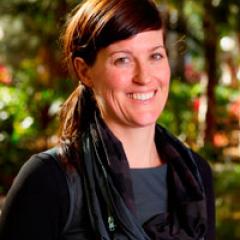The prestigious Fenner Medal honours Eve McDonald-Madden’s research using innovative methods to deal with the complexity of environmental systems. She works to find robust and sustainable solutions at the interface of environmental, societal and economic endeavours.
Winning the 2021 Fenner Medal recognises three main areas of Eve’s contribution: value of information, climate action and environmental decision-making.
Professor Frank J. Fenner AC CMG MBE FRS FAA was an Australian scientist renowned for his achievements in virology. These included overseeing the eradication of smallpox, and reducing Australia’s rabbit plague that was ravaging agricultural land and dramatically impacting the environment through the introduction of myxoma virus. Each year the Australian Academy of Science awards the Fenner Medal in recognition of outstanding research in biology. Former CBCS-er Michael Bode won the medal last year, and Professor Hugh Possingham in 2000.
Watch the Australian Academy of Science video here.
The value of information for decisions
A significant proportion of global environmental fundsare directed to understanding ecological systems and monitoring the outcomes of management endeavours. Rarely is it questioned whether these funds would be better directed to more management activities. Eve has pioneered approaches to inform such important and often controversial decisions.
Climate action
Eve believes the challenge for our global society is to move from debating the evidence for climate change and its impacts to formulating policies that help achieve sustainable long-term objectives, even if those responses have to be made in the face of uncertainty. She led the first optimisation of climate adaptation actions in conservation. To ensure that climate policy is guided by the most up-to-date set of predictions, it is essential that we can detect when climate predictions are failing to capture what is actually happening in nature. Together with colleagues, Eve devised the first method for detecting the failure of climate predictions and applied it to predictions of sea ice change.
Environmental decision-making in complex networks
Environmental decisions are made in a complex web of interactions, involving people and their different cultures, species, ecosystems and socioeconomic connections. Recently, Eve’s research has expanded to include global connections in decision-making, such as the global dynamics of agricultural environmental impacts and global investment. Her team’s early work on the novel notion of “uncontested agricultural lands” for conservation and renewable energy siting uses remote detection of low-productivity lands. Using prioritisation, this work also informs land use to support food security, nature protection and the production and supply of sustainable energy. Through her 2018 “Where’s the Beef?” Future Fellowship, Eve further innovates the way we think about where and how we produce food, and how we can minimise the impacts on industry while maximising other social needs and environmental protection.
Building decision analysis capacity
Eve is driven to tackle globally significant environmental challenges by building multi-disciplinary collaborations and fostering the next generation of environmental decision scientists. In 2018, she was nominated as the inaugural chair of the Environmental Decisions Alliance, a global entity of 14 world-leading member institutions, with the aim of building decision analysis capacity in the environmental sphere, sharing research advances and applications in this area, and catalysing the use of decision analysis for pressing global environmental challenges.

